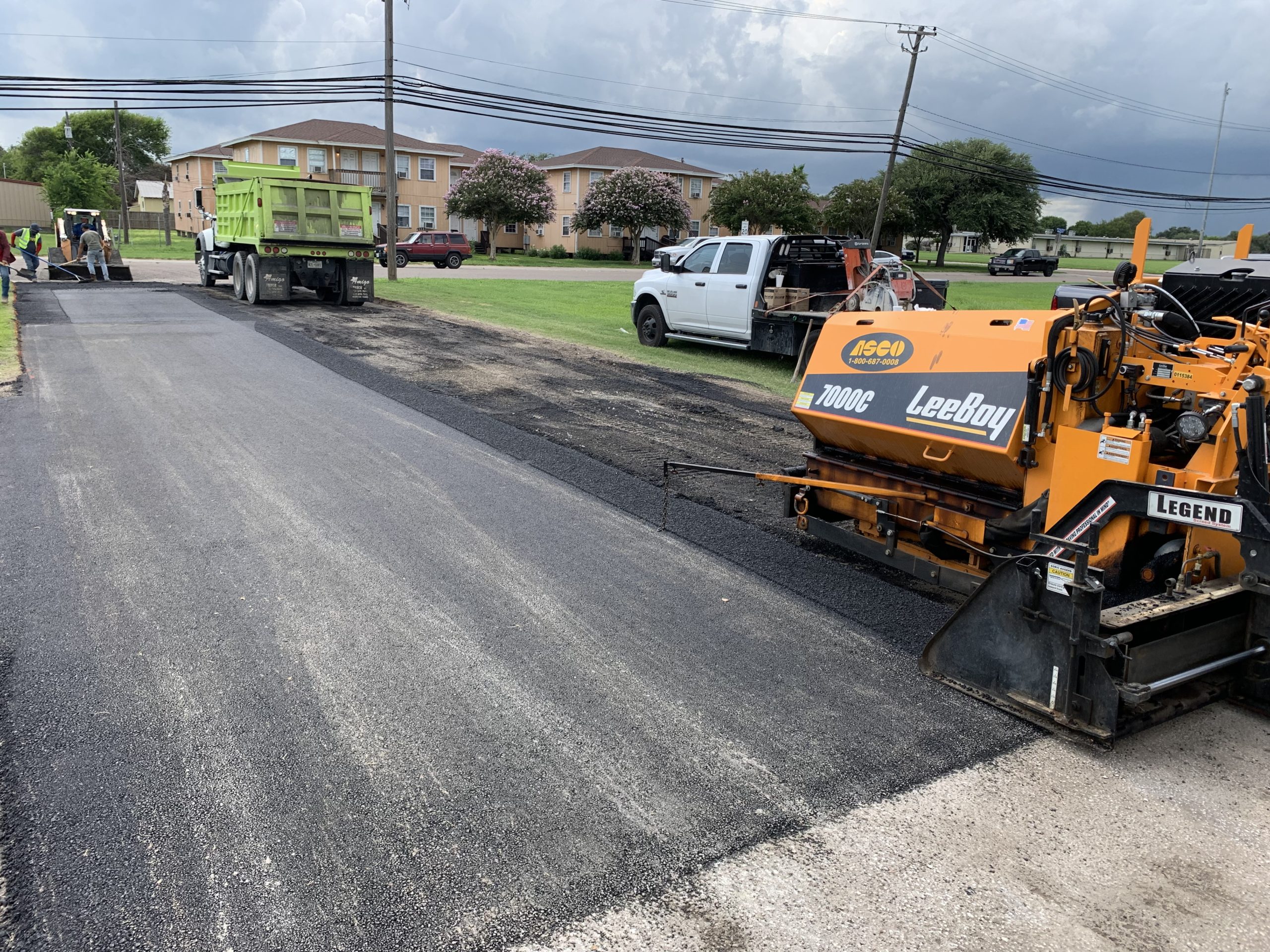
What Factors Affect the Life Expectancy of Asphalt Paving?
For asphalt paving Texas contractors typically consider six factors when providing an estimated life expectancy.
1. How will the pavement be used? In general, pavements that receive high volumes of traffic or heavyweight vehicles will have a shorter life than pavements that are only used by a few passenger vehicles.
2. Did a reputable, experienced asphalt paving company design and install the pavement? The paving company must design a pavement from the ground up to ensure that it will be strong enough to support the type and volume of traffic that it is expected to receive. The installation must be meticulously planned and executed to achieve the proper slope, drainage, and compaction.
3. After installation, what kind of asphalt maintenance did the pavement receive? Periodic applications of sealcoating, routine cleanings, and other preventive maintenance procedures can help you avoid costly repairs down the road by stopping or mitigating damage.
4. Have repairs been made promptly? Houston asphalt paving contractors know that sealing any pavement breaks to prevent water infiltration is an essential part of a long pavement life. Given the amount of rain that the Houston area receives during a typical year, most contractors recommend repairing cracks at least every six months.
5. Are weight limits enforced? One of the fastest ways to shorten the life of an asphalt pavement is to allow heavier vehicles than the paving company designed the pavement to bear.
6. Are there any drainage issues? When paving Houston properties, experienced contractors know that they must install a sufficient number of catch basins, trenches, or other drains. Contractors must also evaluate the impact of runoff from neighboring properties.
What Are the Estimated Life Expectancies for Different Asphalt Paving Projects?
Breaking Houston asphalt paving into specific pavement types is probably the easiest way to provide estimated life expectancies. All of the estimates below assume that the pavement is properly designed, correctly installed, promptly repaired, and proactively maintained.
• Interstates and other high-volume, mixed-use highways typically last 12 to 15 years before they need resurfacing.
• Residential driveways can last as long as 30 years before they need to be resurfaced or rebuilt. However, their life can be shortened if heavy, stationary loads are left on them for an extended period.
• Parking lots can last anywhere from 15 to 25 years. How quickly the vehicles come and go, whether heavy trucks are allowed, and the sheer volume of vehicles can affect the parking lot’s life.
• Residential streets normally have an estimated life of 18 to 20 years if they support a typical mixture and volume of vehicles.
If you need more information, contact Marathon Solutions Group. We offer a full range of asphalt services for paving Houston properties, including asphalt resurfacing and paving, parking lot maintenance, asphalt sealcoating, pavement repair, asphalt milling, parking lot striping, asphalt crack repair, concrete repair, thermoplastic markings, concrete installation, marking removal, bollard installation, and parking lot signage. We are a highly respected concrete and asphalt company with exceptional references, an exemplary reputation for quality, and a commitment to providing superior customer service. To ask us to prepare a free quote for you, submit our online form, call 800-879-1147, or email HQ@Marathon-Solutions.com.


